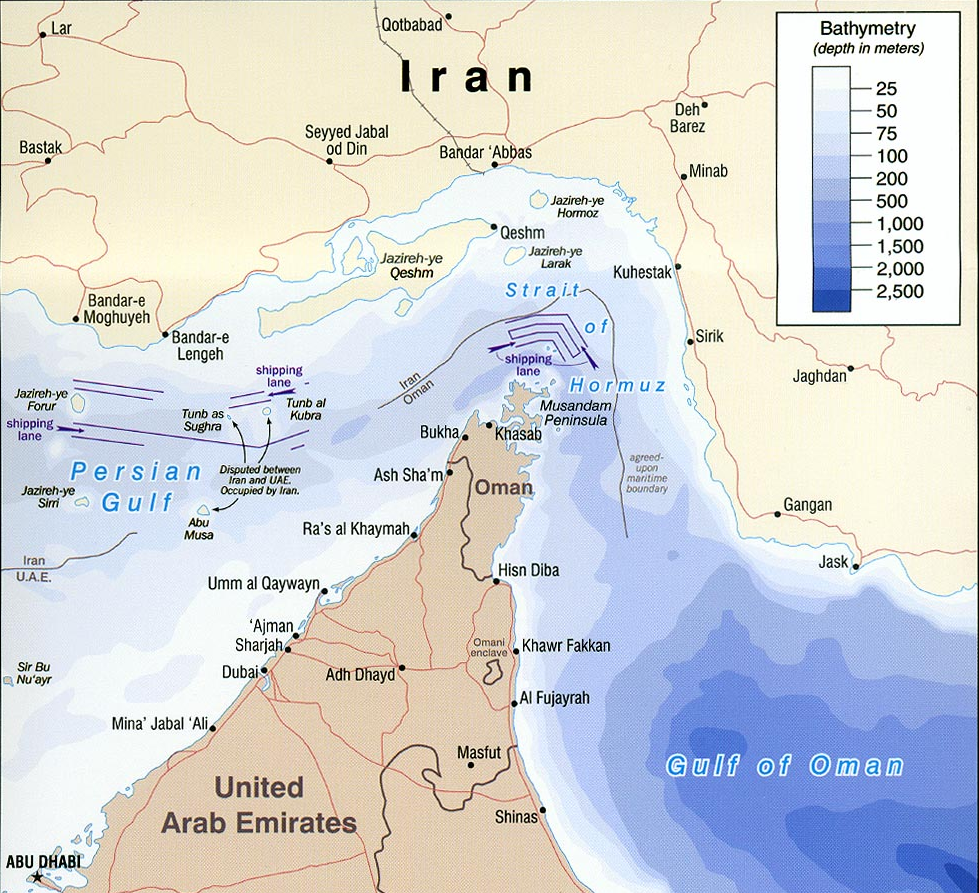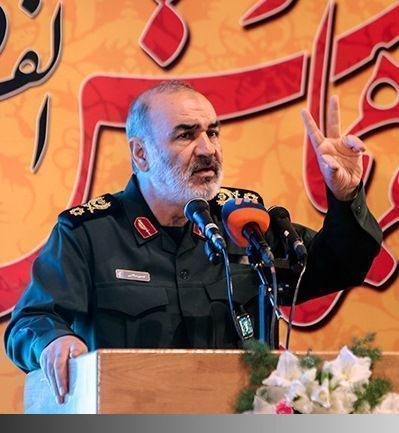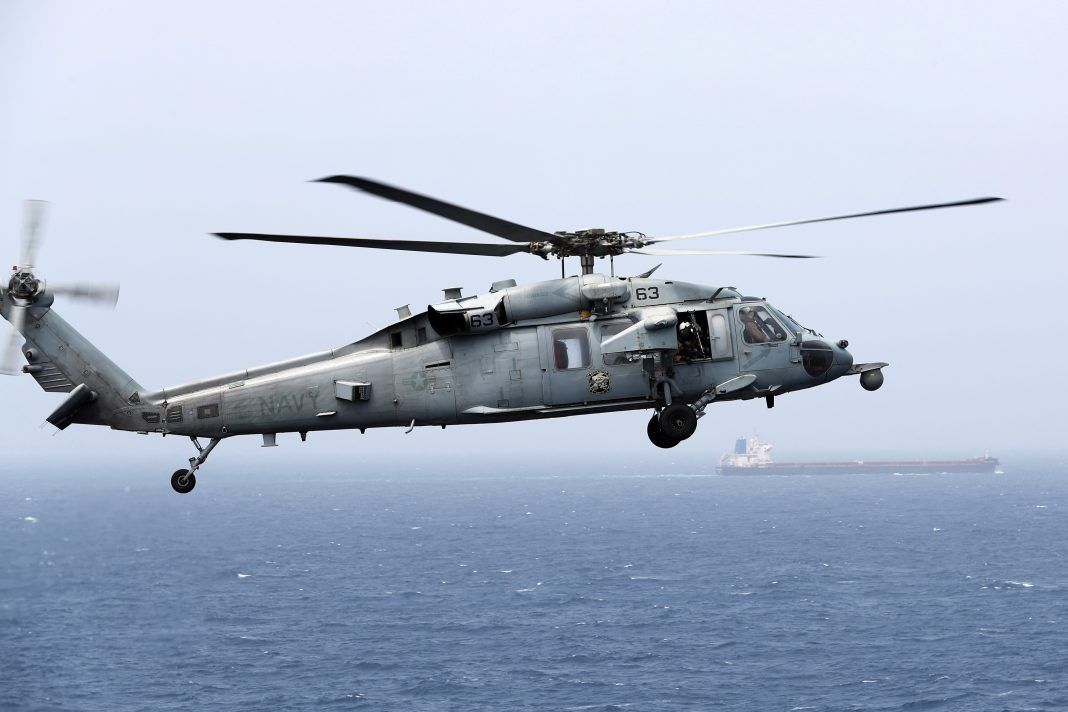By Parisa Hafezi and Alexander Cornwell
DUBAI, July 18 (Reuters) – The United States on Thursday demanded Iran immediately release a vessel it seized in the Gulf and a U.S. military commander in the region said the United States would work “aggressively” to ensure free passage of vessels through the vital waterway.
Responding to an announcement by Iran‘s Revolutionary Guards that they had seized a foreign tanker smuggling fuel, the U.S. State Department insisted Iran had to free the ship and its crew and stop harassing vessels in and around the Strait of Hormuz.
The United States blames Iran for a series of attacks on shipping since mid-May in the world’s most important oil artery, accusations Tehran rejects but that have raised fears the long-time foes could stumble into war.
“The United States strongly condemns the Islamic Revolutionary Guard Corps Navy’s continued harassment of vessels and interference with safe passage in and around the Strait of Hormuz,” a State Department spokesperson said in an email to Reuters.

“Iran must cease this illicit activity and release the reportedly seized crew and vessel immediately.”
Oil prices jumped after news of the seizure amid rising tensions between Tehran and the West over the safety of shipping in the Strait of Hormuz, a vital gateway for energy exports. However they later fell on weakness in U.S. equities markets and an expectation that crude output would rise in the Gulf of Mexico following last week’s hurricane in the region.
Brent crude futures were down $1.76, or 2.8% at $61.91 a barrel by 12:26 p.m. EDT (1726 GMT), after earlier touching a session high of $64.46.
It was unclear if the impounded ship was the same vessel that Iran towed to safety on Sunday after sending a distress signal. Iranian state television had earlier said it was the same ship but a Revolutionary Guards statement did not confirm that.
The Guards said the impounded ship was smuggling one million litres of fuel in the area of Larak Island in the Gulf and had 12 foreign crew. Britain said the tanker was not British-flagged.
Reuters reported on Wednesday that shipping companies were hiring unarmed security guards for voyages through the Gulf as an extra safeguard.
Although Iran has yet to name the vessel, shipping industry sources said they believe it to be the MT Riah. Refinitiv data showed that the last signal received from the vessel was on Sunday when it was in the Strait of Hormuz off the Iranian island of Qeshm, heading towards Oman from Larak Island.
SHIPPING LANES
The tanker’s registered manager is Prime Tankers in the UAE. That company told Reuters it had sold the tanker to another UAE-based company, Mouj al-Bahar.
An employee at Mouj al-Bahar said that the firm did not own it but had been managing the vessel up to two months ago, and that it was now under the management of a company called KRB Petrochem. Reuters could not reach KRB Petrochem for comment.
Since mid-May, attacks on tankers near Hormuz have unsettled crucial shipping lanes that link Middle Eastern oil producers to markets in Asia, Europe, North America and beyond.
Iran denies involvement but has threatened to respond robustly to U.S. sanctions that have followed President Donald Trump’s abandonment of a 2015 treaty in which Iran agreed to restrict nuclear work in return for the lifting of sanctions.
Iran, which has some of the world’s cheapest fuel prices due to heavy state subsidies and the fall of its currency, has been fighting rampant fuel smuggling by land to neighbouring countries and by sea to Gulf Arab states.
President Hassan Rouhani urged Europe to step up its efforts to salvage the pact in a phone call with French counterpart Emanuel Macron. Russia, another party to the pact, also said Europe should be clearer in its position on the agreement.,
Describing Tehran’s recent nuclear pronouncements as “unacceptable”, German Foreign Minister Heiko Maas said other parties to the deal expected Tehran to uphold its side of the accord.
But Tehran says it will continue to reduce compliance with the accord until it is allowed to resume normal oil sales, and has demanded that European parties to the deal rein in Washington.
SEEKING SUPPORT
The United States says it wants to increase pressure on Iran to renegotiate the accord, discuss its ballistic missile program and modify its behaviour in the Gulf, where Washington is allied to several Arab states opposed to Iran.
Iran‘s clerical rulers have ruled out renegotiating the nuclear deal or holding talks on its missile program, which it says is purely defensive.
U.S. Central Command chief General Kenneth McKenzie meanwhile said Washington was talking to several countries about ensuring freedom of navigation in the Gulf and would work “aggressively” to find a solution to enable free passage.
He was speaking in Riyadh at a news conference with General Prince Fahd bin Turki, commander of a Saudi-led coalition fighting the Iran-aligned Houthis in Yemen.
Washington has beefed up its military presence and the U.S. Fifth Fleet, based in Bahrain, says Gulf Arab states have stepped up patrols.

Author: Mohammad Reza Jofar.
Permission (Reusing this file)
Content on rajanews.com is licensed under a Creative Commons Attribution 4.0 International license
Revolutionary Guards commander-in-chief Hossein Salami said Iran had adopted a defensive strategy but warned that “if our enemies make any mistakes …. our strategy can become an offensive one, “ Iranian media reported.
Britain urged Iran to ease tensions in the Gulf and Defence Secretary Penny Mordaunt said Britain would continue to protect shipping and the free flow of goods in that area.
Iran accused Britain of piracy and warned of repercussions after Royal Marines seized an Iranian tanker off Gibraltar on July 4 on suspicion it was shipping oil to Iran‘s ally Syria, in breach of EU sanctions on that country.
In Paris, the French presidency said Macron had spoken to Russian President Vladimir Putin and Rouhani on Thursday. It gave no details on the Rouhani call, but after speaking to Putin, it said the two sides as members of the U.N. Security Council had a vital role in reducing tensions.
France is trying to mediate between the United States and Iran to get a “pause” in the current escalation.
(Additional reporting by Tuqa Khalid in Dubai, Jonathan Saul in London Writing by Michael Georgy and William Maclean Editing by Jon Boyle, Angus MacSwan)


